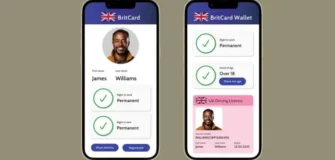Are We Falling in Love with Algorithms?
Share

Every scroll, every click, every “recommended for you” — algorithms are quietly shaping how we live, love, think, and connect. From the songs Spotify plays to the people we match with on dating apps, algorithms are learning what we like — and sometimes, who we like.
But as machines get smarter at predicting our preferences, a question emerges:
Are we falling in love with people — or the algorithms behind them?
According to a 2024 MIT Media Lab report, 72% of users admit they trust digital recommendations “more than their own instincts.” That statistic hints at something deeper: we’re letting algorithms make emotional decisions for us.
What Does It Mean to “Love” an Algorithm?
When we say we “love” Netflix or “can’t live without” TikTok, we’re not exaggerating much. These platforms feed us precisely what we crave — comfort, excitement, connection.
Algorithms analyze billions of behaviors to personalize our experience, turning data into desire. Over time, this creates a subtle dependency that feels emotional, not logical.
Examples of Emotional Algorithmic Bonds:
- Dating apps: Match patterns predict attraction types.
- Music platforms: Emotional AI tracks mood to choose songs.
- Social media feeds: Dopamine-driven loops reward our attention.
- Shopping sites: Predictive engines anticipate what we’ll “fall in love” with next.
It’s not just technology; it’s psychology.
The Science Behind It: Why We Get Attached
Neuroscientists explain that algorithms stimulate dopamine pathways — the same part of the brain linked to romance, reward, and excitement.
Every “perfect” recommendation tells your brain:
“This system understands me.”
That feeling of being understood — even by a machine — creates an illusion of intimacy. According to a Stanford Digital Behavior Study (2023), people form “trust bonds” with digital systems that mirror human connection.
The Numbers Behind Our Digital Obsession
| Platform/Study (2024) | Key Finding | Source |
|---|---|---|
| TikTok | Users spend an average of 95 minutes/day scrolling personalized feeds | DataReportal |
| Tinder | 1.6 billion swipes daily, driven by predictive AI | Business of Apps |
| Spotify | 80% of users listen primarily to algorithmic playlists | Spotify Wrapped Report |
| YouTube | 70% of all watch time** comes from algorithmic recommendations | Google Internal Data |
| Netflix | Personalized algorithms drive 80% of total viewing | Netflix Tech Blog |
The Emotional Cost of Algorithmic Affection
While algorithms make life easier, the emotional cost is subtle but real:
- Reduced serendipity – We stop exploring beyond what’s recommended.
- Confirmation bias – Algorithms feed us more of what we already believe.
- Emotional manipulation – Platforms use our reactions to keep us engaged longer.
- Loneliness – Digital “connection” replaces authentic human interaction.
In short, we’re becoming emotionally conditioned by our feeds.
Are We Losing Our Free Will?
Psychologists call it “algorithmic determinism” — when your digital environment shapes your reality without you realizing it.
Your taste in music, your political stance, your sense of beauty — all subtly guided by machine learning models optimized for engagement, not truth.
But here’s the paradox:
The more algorithms understand us, the less we understand ourselves.
How to Break Free (Without Going Offline)
1. Be a Conscious Consumer
Ask: “Why am I seeing this?” Most apps let you check or adjust algorithmic preferences.
2. Diversify Your Feed
Follow people with different opinions, interests, and backgrounds to challenge algorithmic bias.
3. Reclaim Discovery
Read books, explore podcasts, or meet people offline — rediscover human randomness.
4. Use Privacy Tools
Limit tracking and personalized ads. A little data anonymity brings back genuine curiosity.
5. Set Tech Boundaries
Just as in human relationships, distance can strengthen understanding.
Expert Insight
“Algorithms are mirrors — they show us what we already want to see. The danger is mistaking reflection for truth.”
— Dr. Elena Ruiz, Cognitive Technologist, University of Cambridge
FAQ: Understanding Our Relationship with Algorithms
Q1: Can algorithms really influence emotions?
A: Yes. Algorithms are designed to optimize engagement, which often means stimulating emotional reactions like joy, anger, or curiosity.
Q2: Why do personalized feeds feel addictive?
A: Each tailored recommendation releases dopamine, creating a feedback loop of pleasure and repetition.
Q3: Are algorithms making people lonelier?
A: Studies suggest heavy social media users report 33% higher loneliness levels due to digital dependence and less in-person connection.
Q4: How can I use algorithms positively?
A: Use them intentionally — curate educational, uplifting, and diverse content that enriches your mind instead of numbing it.
Q5: What’s the future of human-algorithm relationships?
A: As AI evolves, emotional AI will blur the line between technology and companionship even more — making awareness critical.
Conclusion
We may not be “in love” with algorithms in the romantic sense, but emotionally, many of us are entangled. The digital systems we built to serve us are now shaping our desires, habits, and worldviews.
Loving algorithms isn’t the problem — forgetting they’re not human is.
The challenge ahead isn’t unplugging from technology, but reclaiming authorship of our attention.



































Leave a Reply